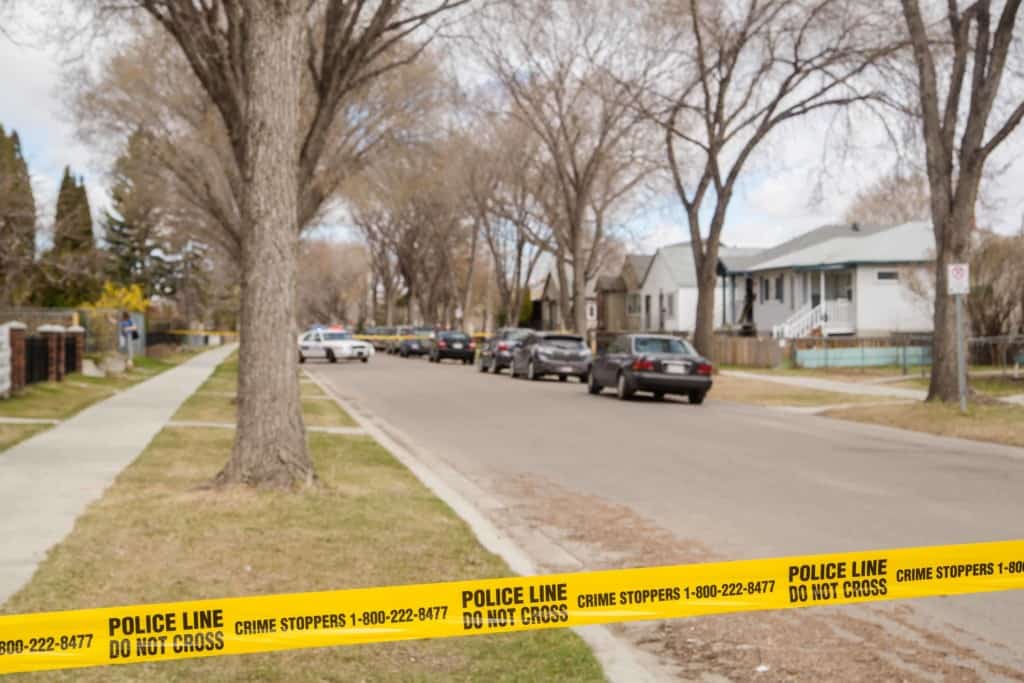Realities of living near a problem property
The house is vacant, a different scene from recently when six police cars and two fire rescue trucks lined the street while a man, possibly high, stood on the peak of the roof taunting and hurling abuse to onlookers below.
Welcome to a problem house in Alberta Avenue. Yvonne tells me what it’s been like living next door for the past 20 years.
“The house has had three different owners since I moved here,” she said. Allegedly, the house was rife with activities such as drugs, prostitution, and the comings and goings of transient people.
She continues, “I’m chronically stressed and have become hyper-vigilant. I sleep poorly.” She said there’s ongoing theft from her property. “I feel conflicted, hoping for the best each time new tenants move in but expecting the worst.”
Each time one group moves out, cosmetic renovations take place, usually late at night or in the early hours of the morning. Then another group moves in and the cycle begins again.
Cyclists pick up and deliver parcels after dark, women come and go in taxis, playing loud music and being disruptive. At times the sounds of fighting and yelling spill outside.
When I ask how she deals with it, she pauses, “The experience has changed me. I’ve become jaded and have lost my sense of optimism,” she said. “My strategy now is to speak to new tenants and tell them our expectations for living in a family-friendly area. I have helped organize block parties, and urged other families to come out of their houses and confront the crisis when it happens.”
She said she continues to live here because of the sense of community in the area. The challenges give people a common bond, a rallying point, and open up conversations.
Yvonne has organized block meetings at various crisis points, called the police, the Child at Risk Response Team, the SCAN unit, bylaw enforcement, and building compliance. Over 100 calls have been made regarding bylaw complaints and the house has been condemned twice but the landlord was only given a warning and time to do required repairs. She’s frustrated with the lack of teeth and follow-up from the City.
Her advice to others is to confront the problem, take ownership. Police attitudes have to change. “Once when I called the police and complained that no action had been taken, I was told, ‘what do you expect, living in Alberta Avenue?’ That attitude is wrong. We pay taxes too.”

Mark, who lives across the street, agrees there are ongoing problems at the house, but he only sees them from a distance.
“For me the most infuriating thing is people parading around all night, yelling and screaming. The house downgrades the whole neighbourhood. The exterior is often ramshackled and messy and filled with vehemence and hate.”
The worst is when the problems spill across the street. “My yard is my sacred and private space and I don’t like it being violated. People come through the gate, take and leave things without respect for our personal property. At times we are surrounded by violent and abusive energy.”
As a social worker, Mark doesn’t reject people because of different lifestyles, but he does expect respect. He explained he continues to live here because he doesn’t believe in running away from problems unless they become intolerable. “I like our neighbours and our economic and cultural diversity. As a social worker, I understand some of the complications that lead people to slip through the cracks.”
That said, he suggests people do research before buying here.
“Drive around, especially at night, to see what’s going on. Meet some of the neighbours if possible.” He also recommends keeping an open mind. “Don’t reject people because of their lifestyles.”
Featured Image: One problem property can affect a whole block. | Rebecca Lippiatt







